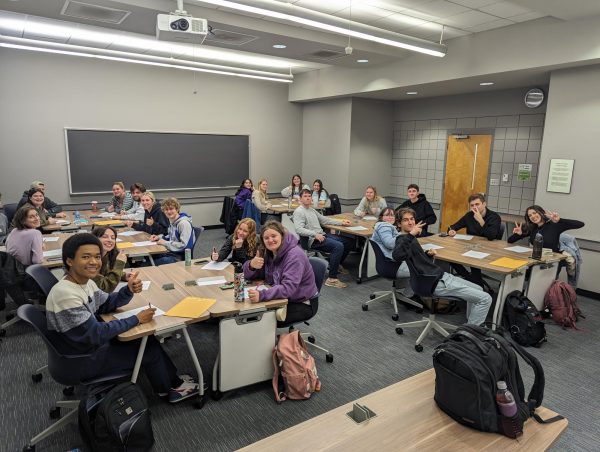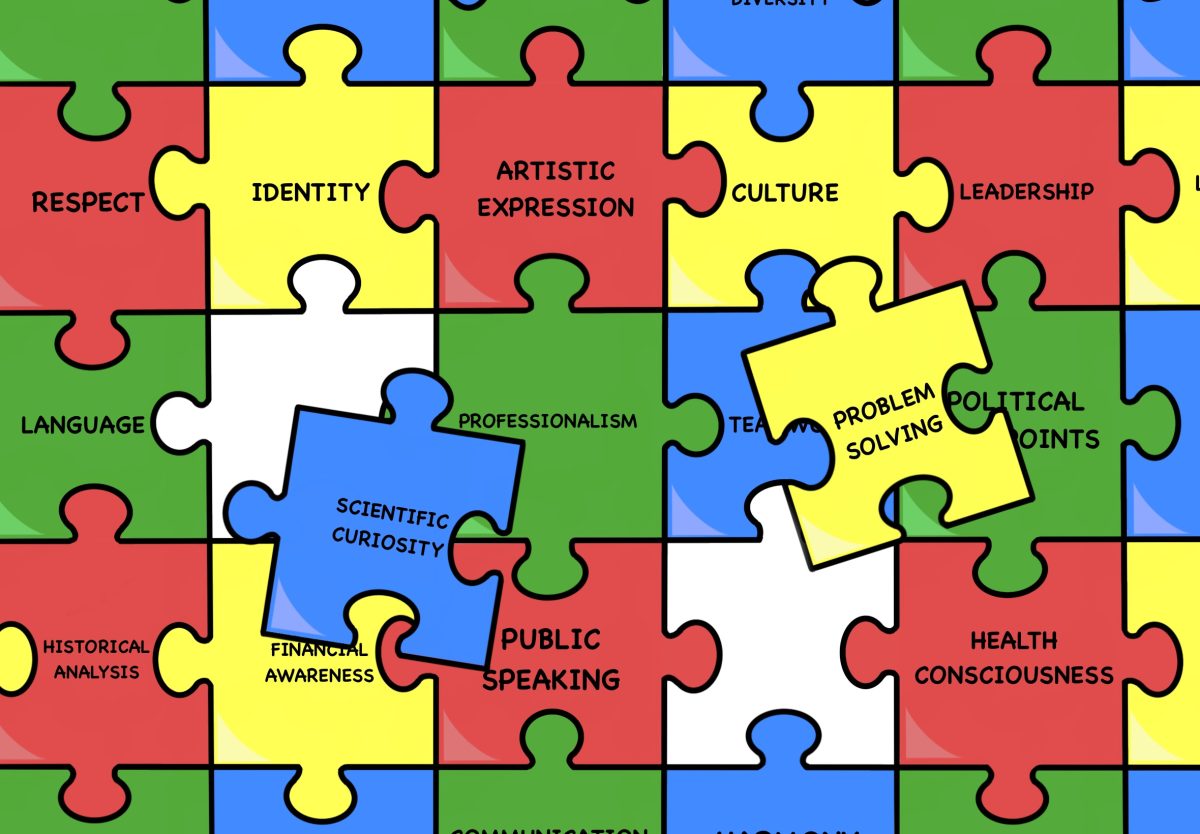By requiring introductory-level STEM courses as part of its liberal arts education, Furman has a responsibility to address the intimidation many students experience when entering these courses by creating curriculums that build confidence in one’s ability to explore unfamiliar subjects and new modes of thought. Furman’s STEM GERs should focus on helping students develop critical thinking skills in STEM fields that can, in turn, be applied elsewhere.
Furman’s website states that the purpose of general education requirements is to “invigorate and stimulate intellectual curiosity” and “broadly prepare students in a diverse set of disciplines.”
However, introductory courses like Chemistry and Biology, which are intended for non-majors, lack applicability outside of the discipline instead of incorporating valuable critical thinking skills.
Ideas in Mathematics provides a better approach to the field for students not majoring in STEM. According to the syllabus, the goals of the course include “to gain a new appreciation for mathematics” and “to build sharper skills and perspective in analyzing issues that transcend mathematics.”
Many students dread STEM GERs, intimidated by the prospect of dense and complicated lectures on material that can feel arbitrary to those pursuing a Bachelor of Arts. By focusing on applying process-based thinking to puzzles, cryptology, and probability, Math department professor Dr. John Harris’ curriculum allows non-majors to dive more confidently into mathematical concepts.

“The first thing I do is just try to make people feel welcome,” Harris said, who has taught at Furman for over 20 years. “There are lots of barriers that some people have when they enter a STEM class like that, and one of those barriers is the material itself and some intimidation regarding that.”
By working through puzzles in class, students build foundational thought processes that they can apply to a variety of problems beyond math class. Harris encourages students to focus on the process of solving problems by having students submit reflections explaining their approaches – a divergence from the traditional focus on getting the right answers. This emphasis on problem-solving techniques offers non-STEM majors a more relatable entry point to the field of math and empowers them to take what they have learned into other aspects of their lives and career.
“If you hear somebody saying, ‘I’m not a math person,’ what you need to tell them is you are not a math person yet. What that means is that you have not really encountered something in math that makes you realize that there are parts that you like,” Harris said.
Students taking Ideas in Mathematics are encouraged to find creative applications of math by exploring math in unconventional ways. They think through complex puzzles, learn the process of decrypting codes, and apply new perspectives to probability exercises. By offering a curriculum encompassing subjects with broader applications than statistics and calculus, Harris actively engages otherwise disinterested students. This approach allows students to become accustomed to following logical, sequential and creative patterns of thinking that can be applied in a myriad of contexts.
There is no value in interdisciplinary study for students of the liberal arts if they feel alienated from the information they are learning.
STEM classes can provide an opportunity for students to find new paths to creativity, access patterns of thinking that help them address real-world problems, and build their confidence in new disciplines. This opportunity is lost in many intro-level GER classes, where unacquainted students are likely to only be reminded that they are not a “STEM person.” There is no value in interdisciplinary study for students of the liberal arts if they feel alienated from the information they are learning.
Similarly, interdisciplinary study has little benefit without interdisciplinary application. In order to build skills valuable across fields of study, departments should prioritize teaching creative and unconventional applications of their study’s competencies to demonstrate their extensive usefulness.
Furman needs more classes like Ideas in Mathematics. The course’s innovative curriculum allows students to approach problems in new and creative ways while acknowledging barriers that students may face and creating a welcoming classroom experience.



























